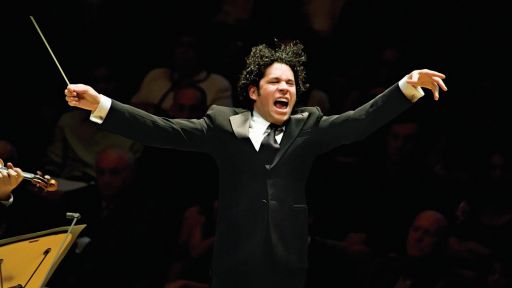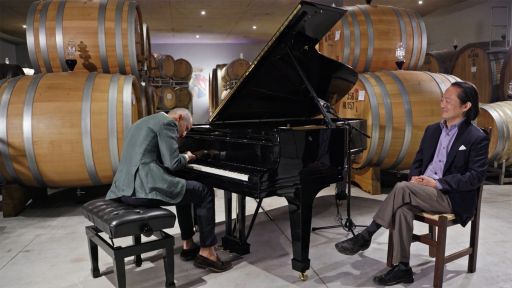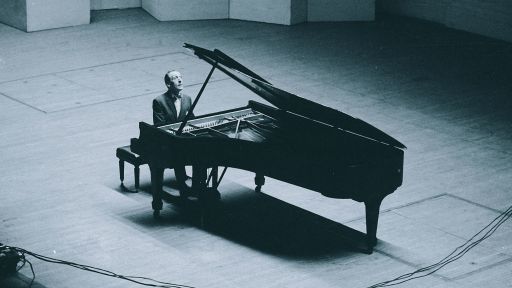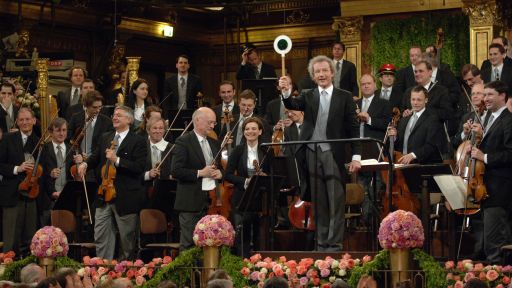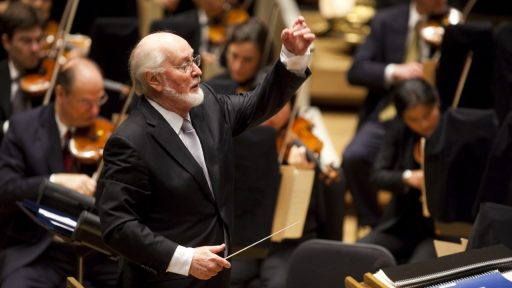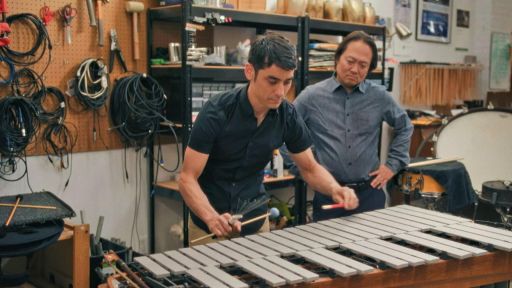by Jennifer Melick. Originally published for WNET.org’s SundayArts Blog.
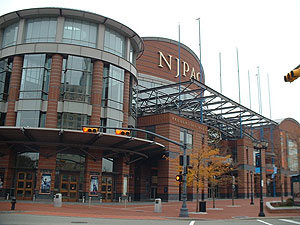 When Gustavo Dudamel’s in town, you go. So on Saturday night, I caught the opening concert of the Israel Philharmonic’s U.S. tour with Dudamel at the New Jersey Performing Arts Center in Newark, just prior to his two Carnegie Hall concerts on November 16 and 17.
When Gustavo Dudamel’s in town, you go. So on Saturday night, I caught the opening concert of the Israel Philharmonic’s U.S. tour with Dudamel at the New Jersey Performing Arts Center in Newark, just prior to his two Carnegie Hall concerts on November 16 and 17.
I asked my 14-year-old daughter to come along, and I didn’t even have to twist her arm. Here’s the rare A-league conductor who’s not even twice her age, and he jumps around on the podium pretty much like kids her age. On a more serious level, my daughter also gets that Dudamel is considered in the same league artistically as Leonard Bernstein, and that this makes his concerts potentially historic. She has friends who are envious she got to go, friends who know that this “Dude” isn’t the same as the “Later, dude” dude.
The concert itself—Tchaikovsky’s Fourth Symphony and two works by Bernstein, his Halil for solo flute, string orchestra, and percussion, and his Jubilee Games, written for the 50th anniversary of the Israel Philharmonic, in 1986—was … how do I put this? It felt like a love-fest between the Israel Phil and Dudamel. The program was so intimately connected with the orchestra and its history that it was impossible not to be moved at many points during the evening. Plus, Leonard Bernstein not only was the composer of two pieces of music on the program, he led the IPO as early as 1948, in Beersheba, Israel, and conducted it frequently thereafter, eventually being named laureate conductor in 1988. Jubilee Games itself is a classically Bernsteinian messy hodgepodge; it’s got some parts where musicians can improvise, such as free-form strings sawing away and trombones raucously glissandoing, a little Habanera, a little Shostakovich, ending with a recorded voice singing the Benediction in Hebrew. The orchestra threw itself into the performance and made as good a case as probably can be made for the music.
Dudamel conducted the Tchaikovsky from memory. The brass played with a wild intensity during the first and fourth movements, the strings wonderfully evoked balalaikas in the pizzicato movement, the oboe and bassoon traded the second-movement’s mournful melody back and forth with skill. And of course, it was entertaining to watch Dudamel’s dancelike podium maneuvers, especially when he gave fist-pump cues on Tchaikovsky’s heavy, Russian offbeats. The orchestra members seemed to bask in the occasion of playing for Dudamel, at first refusing to stand or take bows themselves.
The IPO tour takes place on the occasion of Israel’s 60th anniversary. And as these things happen sometimes, the moment that felt most special wasn’t anything on the written program. It was the opening, with the American flag lit at the left of the proscenium, and the Israeli flag on the right. The orchestra stood up and played first the “Star Spangled Banner” and then “HaTikvah.” Everyone in the auditorium, 2,750 of us, stood up and sang—quite beautifully, actually—and we got all choked up.


